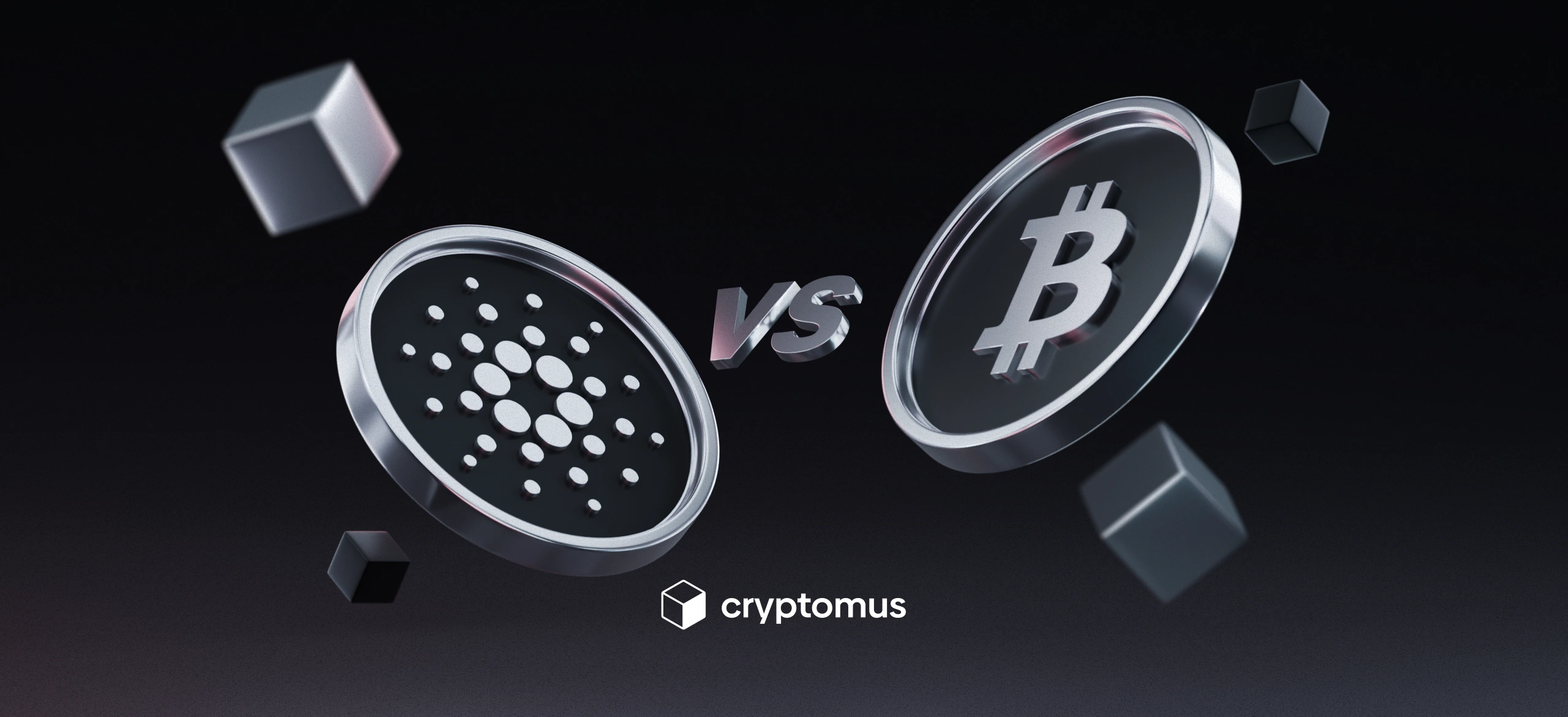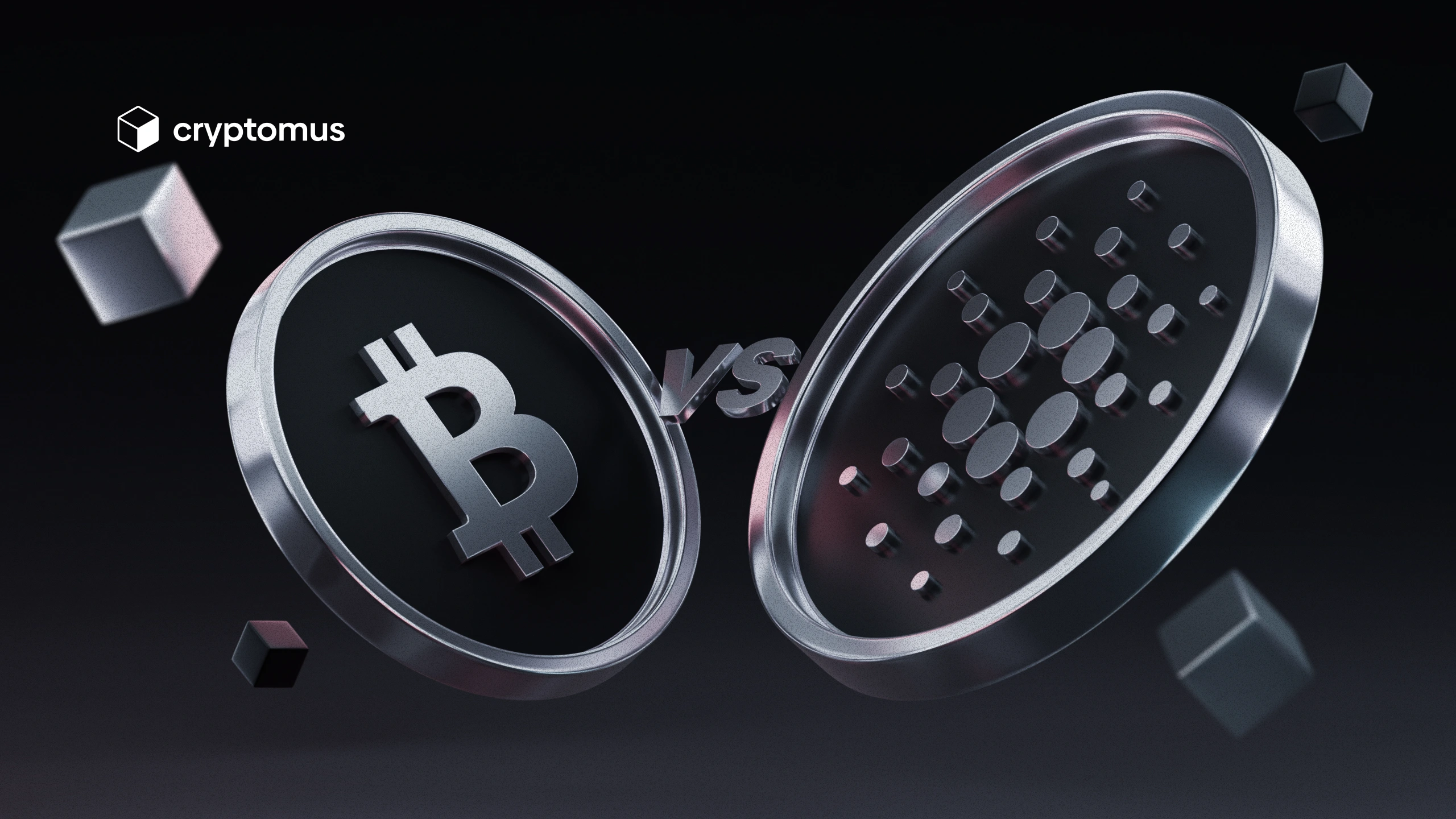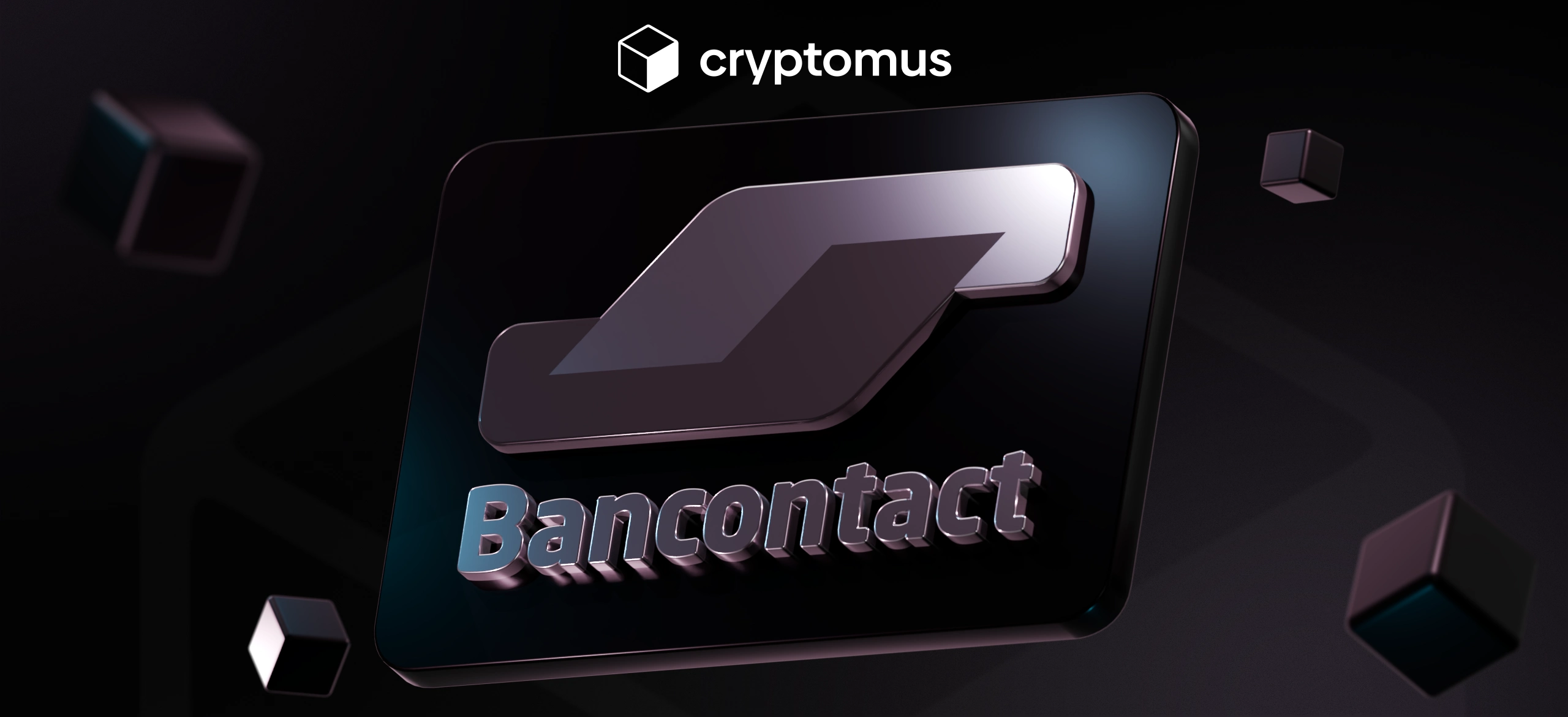
Bitcoin Vs. Cardano: Complete Comparison
Table of Contents
As the digital world keeps growing, investors often find themselves choosing between time-tested cryptocurrencies and newer projects with fresh ideas. Bitcoin and Cardano take very different paths when it comes to blockchain technology.
Bitcoin is seen as "digital gold" — a way to store value, when Cardano aims to be a sustainable platform for building decentralized applications. We’ll explain what each project does, point out their biggest differences, and highlight what things you should consider when choosing between them.
What Is Bitcoin?
Bitcoin is the first and most recognized cryptocurrency. It was created in 2009 by Satoshi Nakamoto, whose real identity is still unknown. The idea was to let people send money directly to each other without needing banks or other intermediaries.
Bitcoin is widely accepted and used nowadays. It’s traded on nearly every crypto exchange (e.g., Cryptomus) and even used as official currency in some countries (El Salvador, the CAR, etc.). Many people also consider it a way to protect their money from inflation.
Bitcoin has a total supply of 21 million coins and uses a mechanism called Proof-of-Work (PoW). So, its scarcity, decentralized nature, and use as a store of value have led many to refer to it as "digital gold".
What Is Cardano?
The Cardano blockchain platform was introduced by Charles Hoskinson, one of Ethereum's co-founders, in 2017. It emphasized energy efficiency and research-based strategy. Moreover, Cardano employs a unique technique known as Ouroboros — a safe and energy-efficient form of Proof-of-Stake (PoS) — to validate transactions.
With a strong focus on research and formal development methods, Cardano supports decentralized apps and smart contracts. The platform seeks to address problems like the governance of the system and the interoperability of various blockchains. In the crypto space, Cardano is regarded as a cutting-edge and promising initiative due to its design and scientific methodology.

Key Differences
Bitcoin and Cardano are quite different in many ways — they have dissimilar goals and technologies. Let’s go over the main differences to see what makes each one special.
1. Consensus Mechanism
Bitcoin uses a system called PoW, where miners solve mathematical problems to confirm transactions and protect the network. The verifying requires a large amount of electricity—similar to the energy usage of some smaller countries.
Cardano employs another mechanism — Ouroboros. To contribute to network security, ADA holders stake their coins rather than mining. Compared to Bitcoin's approach, this consumes roughly 99% less energy.
2. Scalability And Speed
When it comes to speed and handling lots of transactions, Cardano is ahead. Bitcoin can only handle about 7 transactions per second, and due to this, the network is getting crowded, and fees go up — especially when many people use it at once.
Cardano was made to handle more transactions right from the start, and now it can process hundreds of transactions per second. Moreover, with a new upgrade called Hydra coming soon, it will be able to handle even more. This makes Cardano better for real-world uses where fast transactions are needed.
3. Use Cases
Bitcoin’s programming features are kept simple on purpose to keep the network safe. Because of this, it’s not really made for smart contracts or apps that run on the blockchain; its main job is to be a digital store of value and a way to send money.
Cardano was built to support smart contracts and decentralized apps. This lets developers create things like DeFi platforms, NFT marketplaces, and business solutions. Due to this, Cardano can be used for many more things, especially in growing markets and by institutions.
Head-To-Head Comparison
Bitcoin and Cardano take very different paths when it comes to blockchain technology. Below is a comparison table showing the main differences between the two:
| Characteristic | Bitcoin | Cardano | |
|---|---|---|---|
| Launch | 2009 | 2017 | |
| Max supply | 21 million coins | 45 billion coins | |
| Consensus mechanism | Proof-of-Work | Ouroboros | |
| Transaction speed | ~10 minutes | ~20 seconds | |
| Fees | ~$1–3 on average | ~$0.20 or less | |
| Scalability | ~7 transactions per second | ~250 transactions per second (with Hydra upgrade: 1 million+) | |
| Use cases | Store of value, peer-to-peer payments | Smart contracts, DeFi, governance | |
| Decentralization | Highly decentralized | Decentralized with research-based governance |
Which Is The Better Buy?
Bitcoin and Cardano represent two very different ideas about what blockchain can be. Bitcoin is the original and most trusted cryptocurrency. People see it as digital gold—a safe place to store value for the long term. It’s very secure and decentralized, but mainly focuses on simple transactions. Cardano is a newer, next-level platform that aims to be faster, more flexible, and eco-friendly. It is built on solid research and supports smart contracts and more complex uses like decentralized finance and digital identity. However, it’s still in the process of gaining wider adoption. Which one is better depends on what you want. Bitcoin offers stability and a proven track record, while Cardano is about innovation and future possibilities. Many investors choose to include both for a balanced approach.
Thanks for reading our article! What would you pick? Write your answer in the comments below.
Simplify Your Crypto Journey
Want to store, send, accept, stake, or trade cryptocurrencies? With Cryptomus it's all possible — sign up and manage your cryptocurrency funds with our handy tools.
Get Started









